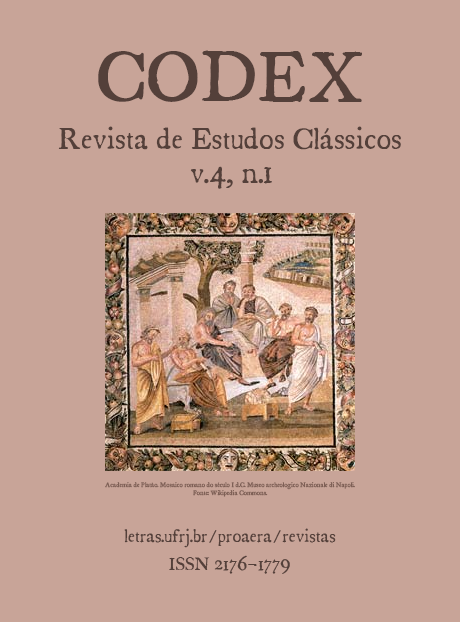Isocrates' Panathenaicus and the platonic critique of writing in the Phaedrus
DOI:
https://doi.org/10.25187/codex.v4i1.3321Keywords:
dialogue, writing, ancient rhetoricAbstract
The final passage of the Panathenaicus (§§ 200-73) consists in a dialogue scene between Isocrates and one of his former pupils, a situation that supposedly preceded the speech's publication. The passage, being the only example of dialogue found in the corpus of the Attic orators, has attracted some attention from the commentators. This article examines the passage according to its form, trying to show the consequences of the introduction of a dialogue in a text that presents itself as the deliverance of an orator. To achieve this goal, I shall compare the speech with the work of the one who surely is the most representative composer of prose dialogue -- Plato. More specifically, the comparison will be made with the Phaedrus, a text important not only because of its contraposition of writing text against spoken dialogue, but also because it contains the only nominal reference to Isocrates in the entire Platonic corpus.
Downloads
Downloads
Published
How to Cite
Issue
Section
License
This work is licensed under a Creative Commons Attribution-NonCommercial 4.0 International License.










